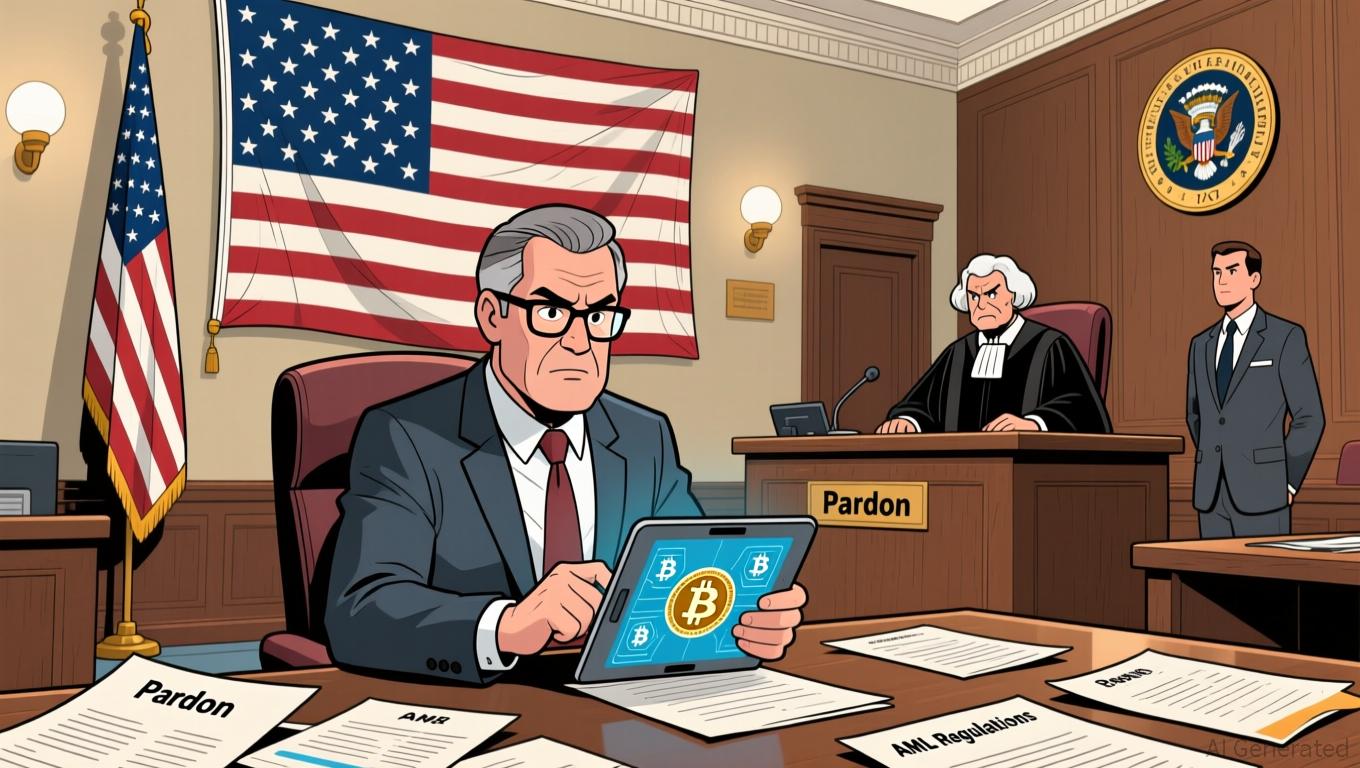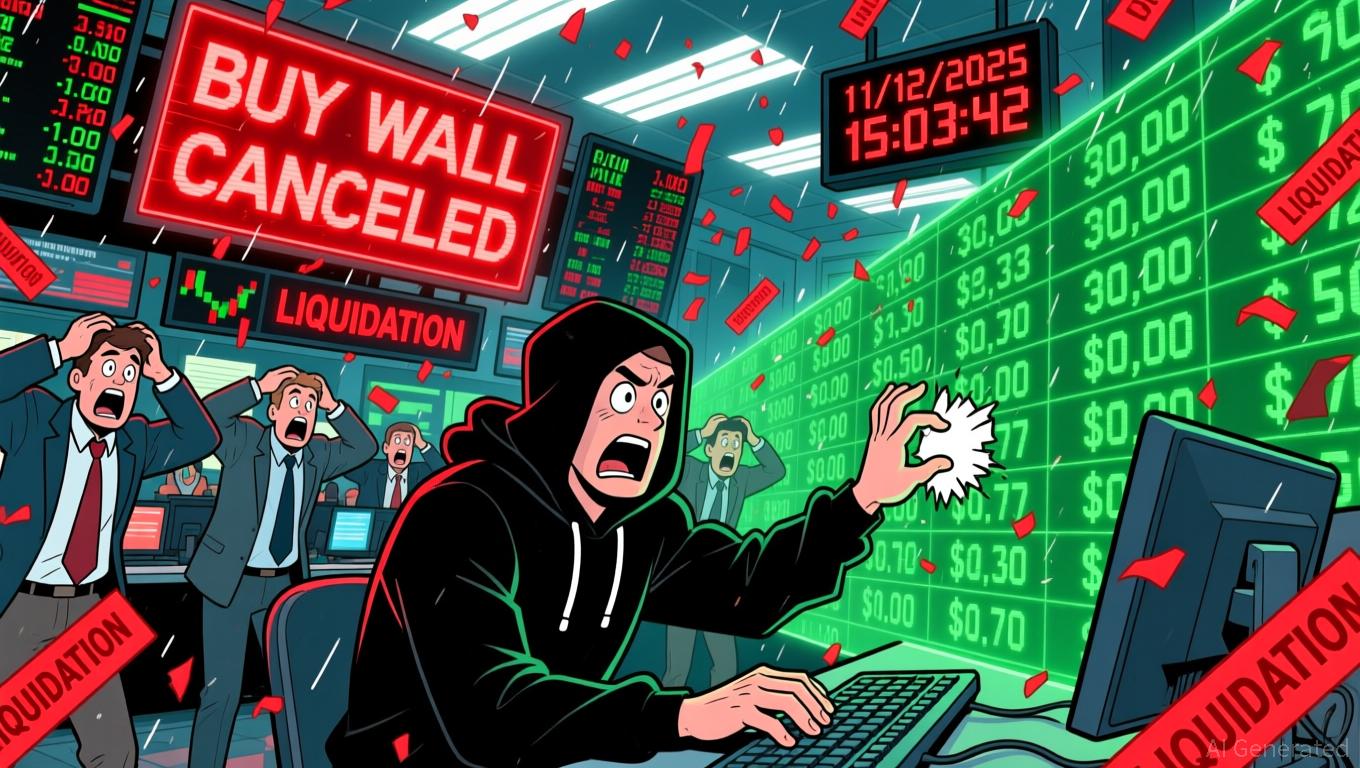Legal Team Portrays Pardon as Protective Measure Amid 'Crypto Crackdown'
- Binance founder CZ's legal team denied "pay-to-play" claims, asserting his 2025 pardon followed standard procedures and regulatory review. - Attorney Teresa Guillén rejected ties to Trump's crypto ventures, calling allegations "false" and emphasizing Zhao's case was regulatory, not criminal. - Critics like Sen. Warren accused Trump of corruption over World Liberty Financial ties, while the White House defended the pardon as routine presidential authority. - Legal scholars called the pardon "unprecedented
The legal representatives for Changpeng "CZ" Zhao have

Zhao, who established Binance, was
Opponents, including Democratic Senator Elizabeth Warren, have
Trump has attempted to distance himself from the issue, stating he does not know Zhao and labeling the legal action as a "Biden witch hunt." The White House has defended the pardon as a standard use of presidential powers, referencing legal assessments to support the decision. At the same time, constitutional experts and former Justice Department officials, such as Elizabeth Oyer, have voiced concerns, calling the pardon "unprecedented" due to its apparent financial influence and self-interest.
This controversy has renewed discussions about reforming the presidential pardon system, with some legislators advocating for congressional oversight to curb potential misuse. As Binance considers returning to the U.S. market, the situation highlights the increasing examination of crypto leaders and their political associations in a sector still facing regulatory ambiguity.
Disclaimer: The content of this article solely reflects the author's opinion and does not represent the platform in any capacity. This article is not intended to serve as a reference for making investment decisions.
You may also like
Hyperliquid News Today: DeFi’s High-Leverage Trading Environments Increase Systemic Spoofing Threats
- Hyperliquid, a fast-growing decentralized perpetuals exchange, suffered a $4.9M bad debt loss from a third 2025 market manipulation attack targeting Solana-based memecoin POPCAT. - Attackers used $3M in USDC to create artificial demand via 19 wallets, triggering a 30% price drop and cascading liquidations that shifted losses to liquidity providers. - The incident highlights systemic risks in high-leverage, illiquid crypto markets, where spoofing attacks exploit thin order books and decentralized governan

Walmart’s Insider Advantage and Target’s Cautious Turn: A Split in Retail Leadership
- Walmart’s internal CEO succession to John Furner has drawn praise for its planned transition and institutional expertise. - Target’s appointment of Michael Fiddelke raised skepticism, with shares down 15% amid concerns over stagnant growth and groupthink. - A Yale study supports internal promotions, citing faster adaptation and stronger stock performance, aligning with Walmart’s 300% gains vs. Target’s 60%. - Market reactions highlight divergent strategies: Walmart’s stock nears 52-week highs, while Targ

Fed's Interest Rate Divide and NVIDIA's Results Challenge the Boundaries of AI Enthusiasm
- U.S. Fed minutes and NVIDIA's Q3 earnings will test AI optimism amid policy uncertainty and governance scrutiny. - Fed's October rate cut debate reveals internal divisions, while ethics probes into Kugler's trades raise transparency concerns. - NVIDIA faces $54.9B revenue test for AI chips, with market valuations hinging on its ability to sustain growth amid short-seller bets. - Strong NVIDIA results could reinforce AI sector momentum, while weak performance risks dampening tech stock enthusiasm.

VanEck Launches Solana ETF, Stirring Investor Interest in Altcoin Market
In Brief VanEck introduced VSOL, a Solana-focused ETF providing staking rewards. Major players like Fidelity and Grayscale also launched similar Solana ETFs. Analysts see the Solana ETF trend as a shift in investor altcoin risk evaluation.
